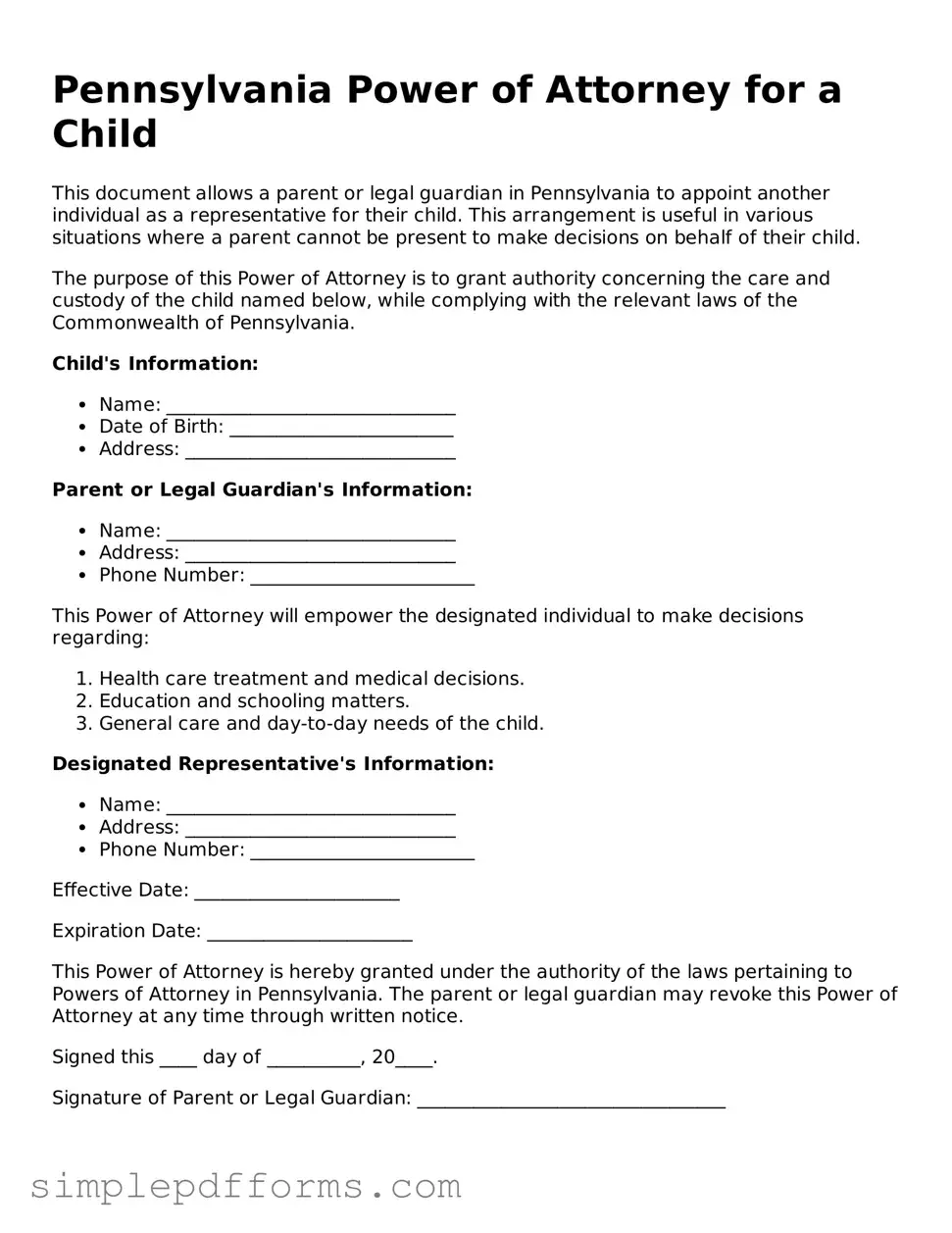Attorney-Verified Power of Attorney for a Child Document for Pennsylvania State
The Pennsylvania Power of Attorney for a Child form is a legal document that allows a parent or guardian to grant another individual the authority to make decisions on behalf of their child. This form is essential for ensuring that a trusted adult can manage a child's needs in the parent's absence. Understanding its importance and the process of completing it is crucial for any caregiver or parent.
Open Power of Attorney for a Child Editor Now

Attorney-Verified Power of Attorney for a Child Document for Pennsylvania State
Open Power of Attorney for a Child Editor Now

Open Power of Attorney for a Child Editor Now
or
Get Power of Attorney for a Child PDF Form
Your form is waiting for completion
Complete Power of Attorney for a Child online in minutes with ease.